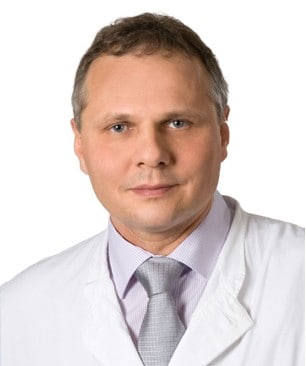ADHD in childhood. Introduction

ADHD is the abbreviation for Attention Deficit Hyperactivity Disorder and refers to a behavioral disorder in children, adolescents, or adults, characterized by abnormalities in the following three core areas:
- attention and concentration problems
- strong impulsivity
- marked physical restlessness (hyperactivity)
An exclusively deficit-oriented perspective does not do justice to these children. Many children with ADHD also have special resources due to their condition. For example, impulsivity can manifest as spontaneity, flexibility, and even creativity.
A subtype of ADHD is Attention Deficit Disorder (ADD), primarily characterized by pronounced inattention rather than hyperactivity or impulsivity.
Core symptoms of ADHD
Children with ADHD exhibit abnormalities in the areas of inattention, hyperactivity, and impulsivity. Other children may sometimes be inattentive, and younger children are generally more active than older children. However, the problems that ADHD children experience in these areas are significantly more pronounced than their peers.
ADHD can affect their academic performance, as well as their relationships with parents, teachers, and friends. The severity of these problems can vary greatly, and the transition from normal to atypical behaviour is fluid. This is similar to other psychiatric disorders or physical illnesses that can range from mild to severe. Nevertheless, professionals can reliably determine whether your child has ADHD or not.
Inattention
Individuals, including children, adolescents, and adults, who struggle with attention problems find it extremely difficult to finish tasks they start. They can only focus on one thing for a short period of time getting easily distracted from a task at hand, resulting in frequent careless mistakes.
These difficulties are often more pronounced in activities that are less interesting and externally imposed by others (e.g., homework, school/work tasks). Some children also experience these problems in activities they choose for themselves, for example by quickly interrupting and not completing self-selected games.
Hyperactivity
Children and adolescents affected by hyperactivity (excessive physical restlessness), particularly in kindergarten and elementary school, stand out due to their constant restlessness and fidgeting. The restlessness can also appear by constantly getting up during class or meals. Children with ADHD often find it challenging to play calmly, as they are constantly active, continuously running or climbing. When asked to be still or sit down, they can only comply for a very short time.
In adolescence, the physical restlessness is usually less pronounced, but there may still be a strong inner restlessness and tension.
Impulsivity
Children with pronounced impulsivity tend to act thoughtlessly and hastily. They follow their initial ideas and impulses without considering the consequences of their actions. Impulsivity manifests in situations such as starting homework without reading the assignment carefully. Sometimes they blurt out answers before questions are fully asked, frequently interrupting others, and having difficulty waiting for their turn.
School performance
Many children with ADHD exhibit developmental delays and performance issues in school. However, for most children, these setbacks are specific, meaning they cannot be attributed to their intellectual disability. In contrary, the ADHD individuals have a higher IQ compared to their not affected peers. They poorer performance in reading, spelling, and arithmetic are solely the effect of inattentiveness and hyperactivity. Clumsiness and coordination difficulties also occur, leading to poor handwriting. Even in preschool and kindergarten, many children exhibit developmental delays, particularly in language, drawing, and movement coordination.
Emotional problems
Children with ADHD exhibit emotional problems which often go unnoticed initially because other issues, such as hyperactive and impulsive or oppositional and aggressive behaviour, are more prominent.
Such problems can manifest as insecurity and lack of self-confidence. Over time, many children with ADHD develop anxiety and uncertainties. They feel less capable than other children, especially in situations related to school performance. Therefore, children with ADHD tend to repeat grades more frequently.
However, they also often experience a lack of self-confidence in other situations. Due to frequent rejection from peers, parents, caregivers, and teachers, many, although not all, children feel insecure and display low self-confidence in social situations.
For some children and adolescents, these emotional issues can escalate into depression and/or anxiety which affects even more their school achievements and social interactions.
Rejection by peers
Children with ADHD are often marginalized by their peers. This can happen either because they constantly disrupt shared play or because their impulsive or aggressive behaviours are perceived as troublemakers or bullies.
Many children with these behavioral problems attempt to dominate and control others as a result of this rejection, in order to maintain relationships with their peers. However, this behaviour can amplify the rejection from their peers.
Strained relationships with parents and teachers
The hyperactive and inattentive behaviour combined with problems to follow roles leads often to conflicts with parents making the relationship between parents and their ADHD child frequently highly strained.
Parents often feel desperate because they can hardly or not at all reach their child with parenting measures (repeated talking and explaining). Parents frequently feel like they have failed in parenting. On the other hand, the child often feels rejected by their parents and believes that he can never do anything right in his parents’ eyes.
The relationships between the child and the kindergarten teacher or the school teacher are often similarly tense.
Diagnostic procedure in child ADHD
Assessments for children ADHD are primarily based on information provided by third parties (parents, teachers), whereas ratings for adults are primarily based on patient self-reports.
DSM 5 diagnostic criteria for child ADHD
The diagnosis for ADHD is based on the DSM-5 defining the disorder as a persistent pattern of inattention and/or hyperactivity-impulsivity that interferes with functioning or development.
In general, the ADHD symptoms usually appear early in life, often between the ages of 3 and 6. The major diagnostic problem is that children mature at different rates and have different personalities, temperaments, and energy levels.
Children get often distracted, act impulsively, and struggle to concentrate at one time or another. We have to be careful not to mistake these normal factors for ADHD. For securing the ADHD diagnosis the symptoms must be observed in two different settings for six months or more and to a degree that is greater than other children of the same age.
Six or more of the below symptoms must persist for at least 6 months:
– fails to give close attention to details or makes careless mistakes in schoolwork
– has trouble holding attention on tasks or play activities
– does not seem to listen when spoken to directly
– does not follow through on instructions and fails to finish schoolwork
– has trouble organizing tasks and activities.
– avoids, dislikes, or is reluctant to do tasks that require mental effort
– loses things necessary for tasks and activities (e.g. school materials, pencils, books)
– Is easily distracted
– Is forgetful in daily activities
Clinical interview and psychometric testing
We use several methods to diagnose ADHD. The most important of them is a thorough clinical interview followed by psychometric assessment. The physical examination, neuroimaging, and laboratory tests help to rule out physical causes of the attentiveness and hyperactivity. The interview of the parents helps to identify the first signs of ADHD in the early child’s development. The parents describe the child’s behaviour as: “having been all over the place”, “daydreaming”, and not being able to ply consistently.
No single test can diagnose a child as having ADHD. A licensed health professional specialized in ADHD should secure the diagnosis by gathering information about the child’s behaviour and environment. The diagnostic process should include the school and medical records. It’s also important to identify unusually stressful child`s home or school settings. The child`s parents and teachers complete the clinical picture providing the necessary information about child’s past behaviour in the home setting and at the school.
ADHD therapy in children
The question of the right treatment arises immediately for parents after the ADHD diagnosis. As ADHD is a not curable condition, the therapy focuses on the symptoms.
Above all, the goal is to normalize the hyperactive, inattentive, and impulsive behaviours of the child as much as possible. This is important for the affected children to develop appropriately for their age and integrate into their environment (family, school, leisure activities).
The multimodal therapy approaches
Treatment options for ADHD have significantly improved in recent years. The multimodal therapy combines various treatment components such as:
- Education and counselling (“psychoeducation”)
- Behavioral therapy
- Parent and teacher training for educational purposes
- Medication treatment
The multimodal therapy approach aims to normalize the main symptoms of hyperactivity, attention deficits, and impulsivity. It also aims to improve academic performance and behaviour in school. Additionally, the child’s personal development and social relationships with friends and family are important measures of therapy success.
Educational Resources for ADHD
American Academy of Pediatrics
Children and Adults with Attention-Deficit/Hyperactivity Disorder
National Institute of Mental Health
U.S. Office of Special Education and Rehabilitative Services

DR. GREGOR KOWAL
Senior Consultant in Psychiatry,
Psychotherapy And Family Medicine
(German Board)
Call +971 4 457 4240
